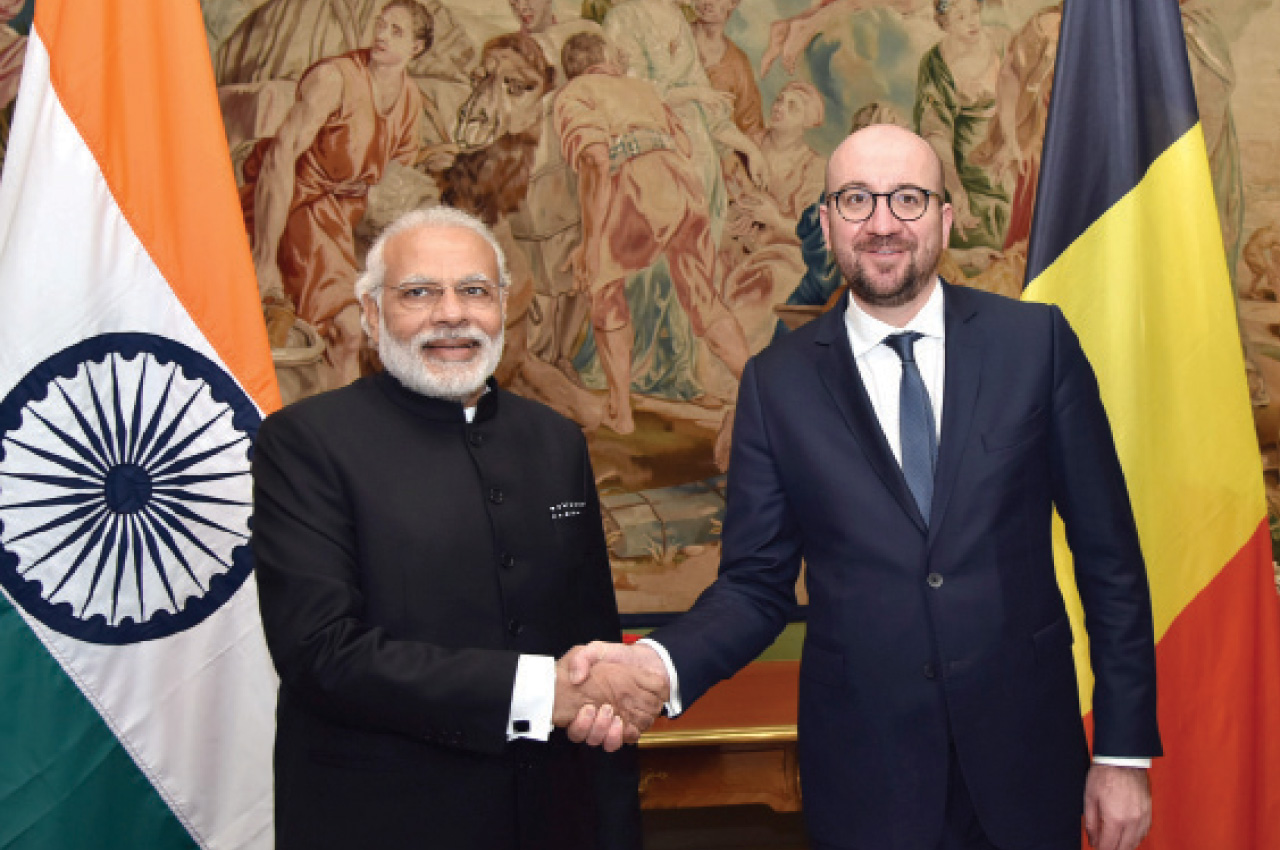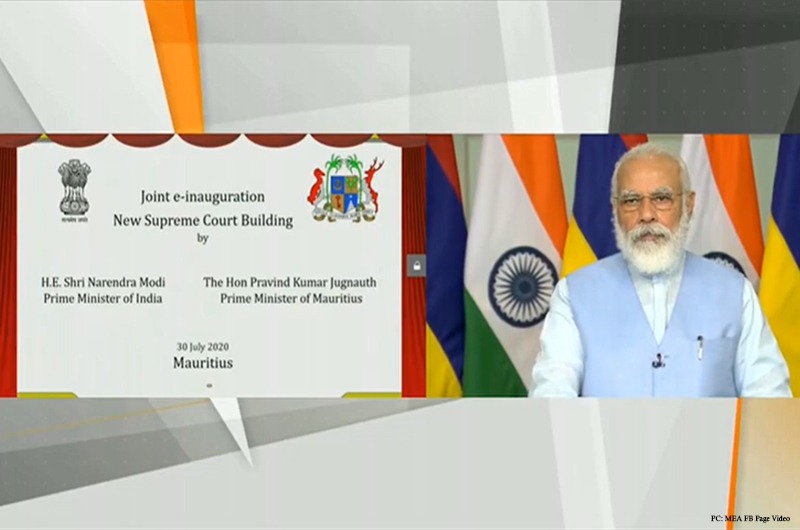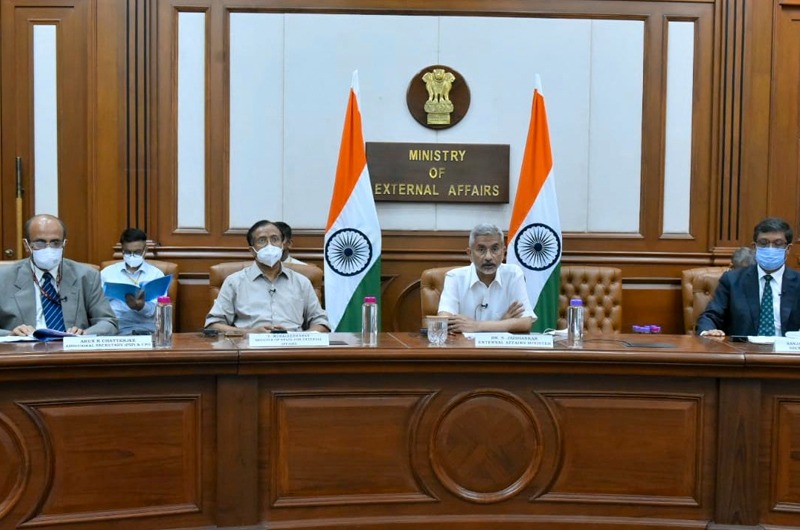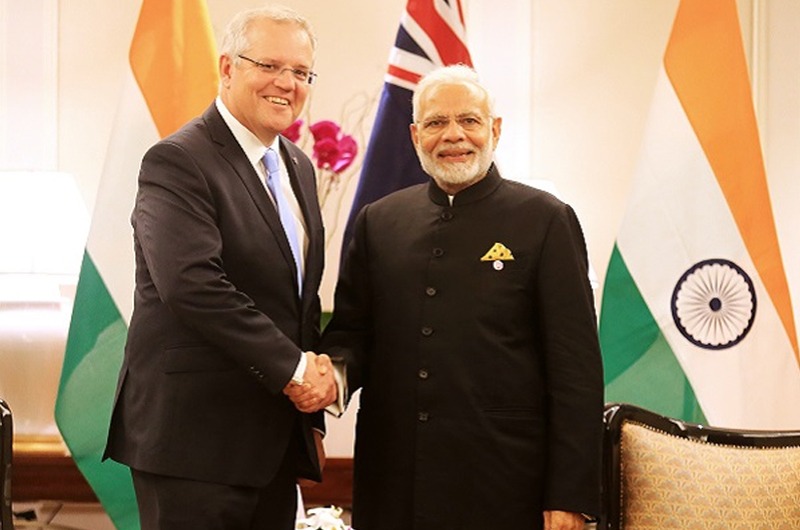Dr Vinita Singh Chhetri
 The Indo-Belgian relationship represents a successful partnership deeply rooted in interlacing history, shared values and interests, cultural and linguistic diversity, respect for pluralism and the rule of law, analogous democratic federal republic models of governance, and strong commercial and political ties. Diplomatic relations between India and Belgium were established in 1947 and have since grown appreciably. Backed by a sustained relationship which has been christened by a host of agreements effected by the two countries over the last seven decades, Indo-Belgian trade relations are set to brace to new horizons. Today, inter-linkages are manifestly visible in all spheres – education, science and technology, trade, civil society; and have deepened to unprecedented levels. Commercial and political relations form the key pillars of this thriving partnership.
The Indo-Belgian relationship represents a successful partnership deeply rooted in interlacing history, shared values and interests, cultural and linguistic diversity, respect for pluralism and the rule of law, analogous democratic federal republic models of governance, and strong commercial and political ties. Diplomatic relations between India and Belgium were established in 1947 and have since grown appreciably. Backed by a sustained relationship which has been christened by a host of agreements effected by the two countries over the last seven decades, Indo-Belgian trade relations are set to brace to new horizons. Today, inter-linkages are manifestly visible in all spheres – education, science and technology, trade, civil society; and have deepened to unprecedented levels. Commercial and political relations form the key pillars of this thriving partnership.
Belgium is located in the heart of one of the world’s most highly industrialized regions. The first country to undergo an industrial revolution in the continent of Europe in the early 1800s, Belgium developed an excellent transportation infrastructure of ports, canals, railways, and highways to integrate its industry with that of its neighbors. One of the founding members of the European Community (EC), Belgium strongly supports deepening the powers of the present-day European Union to integrate European economies. For 200 years through World War I, French-speaking Wallonia was a technically advanced, industrial region, while Dutch-speaking Flanders was predominantly agricultural. This disparity began to fade during the interwar period. As Belgium emerged from World War II with its industrial infrastructure relatively undamaged, the stage was set for a period of rapid development, particularly in Flanders. The postwar boom years, enhanced by the establishment of the EU and NATO headquarters in Brussels, contributed to the rapid expansion of light industry throughout most of Flanders, particularly along a corridor stretching between Brussels and Antwerp (now the second-largest port in Europe after Rotterdam), where a major concentration of petrochemical industries developed. Belgium’s position in the international affairs is one that counts on its immaculate stand on global issues of all types and its say in the global forums can hardly be under-estimated. In view of the venerated international reputation that the country has gained, it is quite necessary to continue to strengthen the chords of relationship.
Prior to 1973 when UK was not a member of European Union, India’s trade with Western European countries was largely concentrated with England. This was primarily because of the UK’s colonial relations with India. Geographical trade diversion of Indian merchandise in Western Europe started in late seventies. Germany, Belgium, France, Netherlands and Spain were the first countries that attracted Indian merchandise. However, bilateral trade relations between India and Western European countries started blooming towards the end of eighties. Of all the countries in continental Europe, India’s trade became more prominent with Germany and Belgium. After Germany, bilateral trade with Belgium is the largest. Since 1991, India’s trade reforms have made significant improvement in India’s bilateral trade. India’s policy makers understood that increasing the openness of India’s economy was key catalyst for sustaining faster and sustainable economic growth. In fact, India’s international trade volume has grown faster than GDP due to increasing exports of goods and services. The Diaspora in both India and EU brings people and cultures together leading to enhancing economic policy and cooperation for developing trade and investment. India has embarked on a process of economic reform and progressive integration with the global economy that aims to put it on the path of rapid sustained growth. However, India’s trade regime and regulatory environment remains uneasy and comparatively restrictive. In 1994, cooperation agreement signed between EU and India took bilateral relationship beyond trade and economic cooperation. The trade has multi-dimensional relationship in which India maintains one third of the exports reaching to EU destination.
Belgium is the second strategic nation in European Union as far as Indian bilateral trade relations are concerned. MoU signed between National Bank of Belgium and Reserve Bank of India on 13 March, 2013 has added more advantage concerning mutual cooperation. The Fourteenth India BLEU JCM was held in September 2015. Potential for trade diversification, enhancing cooperation in investment, infrastructure, market access issues, diamond sector and higher education were the main points of agenda. Belgium is home to many Indian information technology companies, chemical firms etc. Belgium is most interested in dredging, engineering goods, electronics and software etc. At present, there are about 150 Belgian companies formally established in India and several distinguished Indian companies are active in Belgium, for example Tata Consultancy Services, Crompton Greaves, Raymond and others.
India and Belgium share common values of democracy, pluralism and rule of law and are committed to multilateralism in international relations. On the political side, India’s aim is to enhance interaction at the highest political level.
The trade between the countries has been hovering around a single commodity group i.e., Gems and Jewellery. Trade in gems and jewellery constitutes over 75 percent of the bilateral trade and diamonds make up 82.86 percent of Belgian exports and 40.14 percent of Belgian imports with India. This is not particularly surprising; the Belgian city of Antwerp is known as the diamond capital of the world, through which over half of the world’s diamonds pass in trade. Meanwhile, the Indian city of Surat cuts 9 out of 10 of the world’s diamonds. Major items of Indian exports to Belgium are iron & steel products, minerals fuels, oils, apparels and clothing accessories, organic chemicals, fishery products, man made staple fibres, electrical machinery etc. Major items of imports to India from Belgium are precious stones and metals, boilers, machinery and mechanical appliances, iron & steel products, pharmaceuticals, organic chemicals, plastic & its products, electrical machinery & equipments, photographic & cinematography equipments, measuring equipment, wood pulp etc. In the case of investment, some Indian companies have acquired businesses in Belgium.
Both countries, of late, have realized the importance of diversifying the trade beyond diamonds into other domains identified by both countries. There have been serious efforts culminating into policy implications to take the trade into new and emerging areas of mutual interest. While Belgium business interests cover ports, construction, banking and finance, chemicals and fertilizers and solar energy, India would like to further make widespread base of its traditional existing export basket with more venture into IT and IT enabled products. Given that India views Europe as partner for its search for advanced technologies that will help Asia’s third largest economy achieve its development goals, it was only natural that Prime Minister Narendra Modi would dwell on his government’s key initiatives like Make in India, Digital India, and Start-up India to attract Belgian technology and investments. While diamond trade has been a strong anchor in bilateral commerce, renewable energy, harnessing waste for energy, small wind turbines and zero emission buildings were some of the new areas for cooperation highlighted by the Prime Minister. Sectors such as information technology, tourism, shipping and ports are also on the list of cooperation.
The present scenario of trade relations between Belgium and India is quite robust. Trade volumes have been touching new horizons. It can be concluded that the economic well-being of India and Belgium is intrinsically linked to the health of the global economy and the importance of strengthening partnership is well recognized and both the countries have to work towards this with more vigour and passion.








